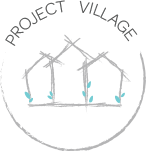Would you describe yourself as a “people person” or an “empath”? Are you able to accept constructive criticism from others? Are you able to admit when you’re wrong? If so, you may have high emotional intelligence. This is the ability to understand and manage your emotions as well as those of others. Is a very important skill to have. It can lead to better relationships, a better career, and even better mental health for you. The topic is far encompassing, but in this blog, we’re going to talk a bit about what exactly emotional intelligence is, why it’s so important, and how you can develop and hone your emotional intelligence skills.
What is emotional intelligence?
It is the ability to understand and recognize our own emotions, recognize emotions in others, as well as the ability to control your emotions, and influence the emotions of those around you. According to the Yale Center for Emotional intelligence, the acronym “RULER” can help describe the essential skills for both children and adults to learn and develop when it comes to their emotions:
*Recognize
*Understand
*Label
*Express
*Regulate
Someone who is able to do these things is said to have emotional intelligence. When one has a high level of it, you will be able to recognize your emotions, know why you feel what you feel, and often understand the underlying emotions behind your behavior, as well as how to “manipulate” or regulate those emotions to help yourself. And at the same time, you’re easily able to pick up emotional cues from others and help influence those emotions.
Why is important?
Emotional intelligence works in so many ways to make life better. Here are just some of these ways:
Relationships: You will be more likely to have better friendships, relationships with family, and romantic relationships. You’ll be able to hold a healthy, happy relationship with others, but also recognize when certain relationships are toxic and stay away from them. You’ll be more likely to apologize when needed, resulting in better-mended relationships after arguments. Higher emotional intelligence makes one a better listener, and it is always a plus in interpersonal relationships.
Career and work life: Working involves being able to get along with others and work with a wide variety of personalities, whether these people are your coworkers or clients, which is why it’s no surprise it can help your career too. People with low emotional intelligence have a hard time being assertive when needed or being in control in a situation. That can lead to a hard time moving up the corporate ladder or difficulty feeling confident enough to break off on your own if you so choose.
You: This is directly related to better mental health. When you can recognize negative emotions as they’re coming on, you can work on dispelling them or on self-soothing techniques. People with high emotional intelligence have an easier time setting boundaries, which results in less stress for you. And of course, less stress means better physical health as well.
Learning to control your emotions is key to honing your level of emotional intelligence. Practice recognizing your emotions as well as others’ emotions in order to improve your relationships, your work, and you!
For some wonderful tools to develop it, check out these products from our Project Village partners:
- Coping Skills for Kids: https://store.copingskillsforkids.com/discount/VILLAGE
- Coping Skills for Kids: These are e-courses geared towards parents and educators to help build the emotional intelligence of children.
- Stress Intel: these wonderful programs will help adults develop stronger coping skills and EI.

